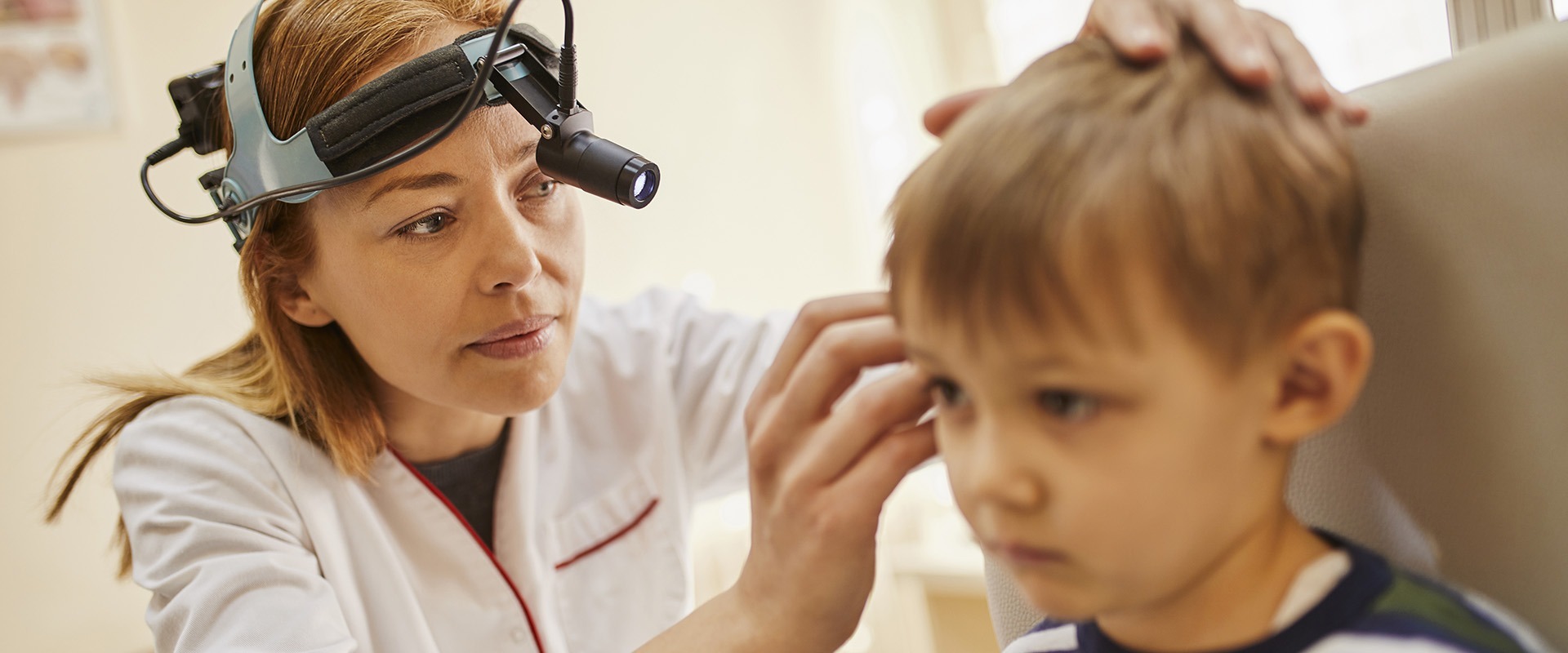Introduction
Understanding Meningitis and Hearing Loss
Meningitis, a severe infection that can cause inflammation in the brain and spinal cord, can result in various complications, including hearing loss. The impact of meningitis on a child’s hearing abilities may be temporary or permanent, and the severity can range from mild to profound. The connection between meningitis and hearing loss is crucial for parents to understand in order to identify early warning signs and seek appropriate treatment.
Audien BTE (Behind the Ear) Rechargeable OTC Hearing Aid
Experience Unparalleled Sound Quality with the New Audien BTE (Behind the Ear) hearing amplifier. Elevate your hearing with the clearest, highest-quality sound available in an over-the-counter hearing assistance device. Designed by Audien, renowned for their sleek and comfortable hearing devices, the BTE model ensures exceptional hearing performance. It features advanced digital technology, including four environmental modes, background noise reduction, feedback cancellation, and two directional microphones per unit (four in total).
Say Goodbye to Missed Conversations and Hello to Superior Sound. Audien hearing devices excel at amplifying speech while reducing background noise, allowing you to effortlessly engage in conversations with friends and family. Experience the consistent, long-lasting, and sharp sound quality without any whistling or feedback issues. With customizable volume control, you can easily adjust the amplification to meet your individual needs. These devices are perfect for enhancing high tones and improving TV dialogue clarity.
Rechargeable for Uninterrupted Use. The Audien BTE hearing amplifiers are 100% rechargeable, offering convenience and freedom from the hassle of tiny button batteries. With wireless magnetic charging technology, you can enjoy a 20-hour battery life with just a quick two-hour charging time. The included charging case provides up to three full charges, giving you a total of 60 hours of amplified sound. Simply place the devices in the case, and they will wirelessly charge, ensuring you’re always ready to hear your best. Experience the ease and reliability of Audien sound amplifiers, ideal for individuals with dexterity issues or those tired of constantly purchasing and replacing batteries.
Types of Meningitis Linked to Hearing Loss
There are several types of meningitis that can lead to hearing loss. Bacterial meningitis, caused by specific bacteria like Streptococcus pneumoniae, Haemophilus influenzae, and Neisseria meningitidis, is known to have a higher risk of causing hearing problems. Viral meningitis, on the other hand, is less likely to result in hearing loss, but some viruses such as mumps and measles can still have an impact. By recognizing the different types of meningitis, parents can better anticipate potential hearing loss in their children.
Discover the Secrets of Hearing Loss
Why Meningitis Causes Hearing Loss
Meningitis can cause hearing loss by damaging the delicate structures within the inner ear. When the infection spreads to the inner ear, it can cause inflammation and swelling, leading to damage of the hair cells responsible for detecting sound. In some cases, the infection may also cause the auditory nerve to become inflamed or damaged, which disrupts the transmission of sound signals to the brain. Understanding the reasons behind meningitis-related hearing loss is essential for parents in order to seek appropriate intervention and support for their child.
Detecting Signs of Hearing Loss in Children
Early detection of hearing loss is critical for a child’s speech, language, and social development. Parents should be vigilant in observing their child’s behavior and responses to sound, especially if the child has recently experienced meningitis. Signs of hearing loss may include a lack of response to loud noises, difficulty understanding speech, and delayed speech development. By closely monitoring their child’s behavior, parents can help identify potential hearing issues and seek early intervention.
Treatment Options for Hearing Loss Due to Meningitis
If a child is diagnosed with hearing loss resulting from meningitis, there are several treatment options available. Hearing aids can amplify sounds, making them easier for the child to hear. In more severe cases, a cochlear implant may be recommended, which directly stimulates the auditory nerve, bypassing the damaged hair cells. Additionally, speech therapy and auditory training can help children with hearing loss develop their speech, language, and listening skills. It is crucial for parents to consult with a qualified audiologist or medical professional to determine the most appropriate treatment plan for their child.
Preventing Meningitis-Related Hearing Loss
Preventing meningitis is one of the best ways to reduce the risk of hearing loss in children. Vaccines are available for many of the bacterial strains that cause meningitis and can significantly decrease the likelihood of infection. Parents should ensure their children receive the recommended vaccinations and discuss any concerns with their healthcare provider. Additionally, practicing good hygiene and teaching children to wash their hands regularly can help minimize the spread of infection.
Support for Parents and Children Affected by Hearing Loss
Parents of children with hearing loss can access various resources and support networks to help them navigate their child’s journey. Local support groups, online forums, and organizations like the American Society for Deaf Children and the Alexander Graham Bell Association for the Deaf and Hard of Hearing offer valuable information, guidance, and connections to other families in similar situations. By reaching out for support, parents can gain the knowledge and encouragement they need to help their child thrive.
Monitoring Your Child’s Hearing After Meningitis
It is essential for parents to closely monitor their child’s
hearing after a meningitis infection, as hearing loss can develop even after the initial symptoms have subsided. Regular hearing evaluations, including audiograms and tympanograms, can help identify any changes in hearing abilities and ensure that appropriate interventions are put in place if needed. By proactively monitoring their child’s hearing, parents can help minimize the long-term impact of meningitis-related hearing loss on their child’s development.
QUIZ - SYMPTOMS OF HEARING LOSS IN CHILDREN
Conclusion
Meningitis and hearing loss are closely connected, and it is crucial for concerned parents to be aware of the risks and warning signs. By understanding the different types of meningitis, detecting early signs of hearing loss, and exploring treatment options, parents can provide their children with the best possible support. Preventative measures such as vaccinations and good hygiene practices can help minimize the risk of meningitis-related hearing loss, while resources and support networks can aid parents and children throughout their journey. Continuous monitoring of a child’s hearing after meningitis is vital in ensuring proper interventions and support are in place for optimal development.

Navigating New Horizons: The Dawn of Hope for Otosclerosis
Introduction Imagine standing at the edge of a precipice, facing a vast expanse of unknown territory. You feel the wind brush your hair, the earth

Echoes in Silence: Demystifying Otosclerosis with Empathy and Understanding
Introduction Navigating the world with otosclerosis can be a daunting journey. The delicate symphony of sounds we often take for granted becomes a challenging labyrinth





